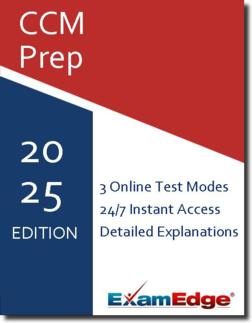The Commission for Case Manager Certification (CCMC) is the governing body responsible for overseeing the certification process for professionals working in the case management field. They offer the Certified Case Manager (CCM) certification, which is recognized as the standard of excellence for case management services.
Step 1: Eligibility and Application
Before applying for the CCM exam, you must meet specific eligibility requirements. These include a license or certification in a health or human services discipline and at least one year of full-time case management experience. Once you have confirmed your eligibility, you can apply for the exam through the CCMC's official website. You will be required to complete an online application form and pay an application fee.
Step 2: Scheduling the Exam
After your application has been approved, you will receive an Authorization to Test (ATT) letter by email. You can then schedule your exam at a Prometric Test Center location convenient for you. These centers are located all over the United States. You can find a nearby location on the Prometric website.
Step 3: Taking the Exam
The CCM exam is a computer-based test consisting of 180 multiple-choice questions. The exam duration is three hours, and it covers five major domains of case management practice. Once you have finished the exam, your scores will be available immediately.
For more detailed information, you can visit the official CCMC website at www.ccmcertification.org. This website provides extensive resources, including a comprehensive guide to the exam, study materials, and a list of eligible disciplines.
Center for Case Management Exams
The CCM Case Management Administrator Certification test is a comprehensive examination that evaluates an individual's expertise in healthcare case management. It covers areas such as care coordination, patient rights, resource management, and quality assurance. The test is designed for healthcare professionals who are responsible for managing the care of patients and ensuring they receive appropriate, efficient, and cost-effective care. This certification is recognized by many healthcare organizations as a benchmark for professional competency in case management. It requires a thorough understanding of healthcare delivery systems, ethical and legal considerations, and case management processes.
Assessment Of Clinical System Components - 10%
Development Of Strategies To Manage Populations - 10%
Leadership For Change - 20%
Market Assessment And Strategic Planning - 15%
Program Evaluation Through Outcomes Measurement - 17%
Human Resource Management - 18%


